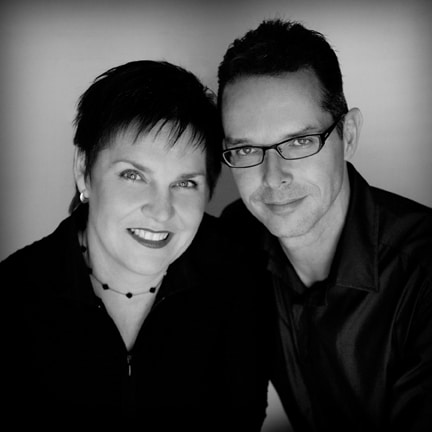
In many Asian teachings, including Buddhism, karma is an important concept. Since Usui Mikao, the founder of the system of Reiki, was a Japanese Buddhist practitioner, we wondered: Is the concept of karma contained within the teachings of the system of Reiki?
What is Karma?
The Sanskrit word karma (or go, in Japanese) literally means action or conditioned activity. However, Buddhism takes this literal interpretation and extends it so that karma is the action, the intention or motivation behind each action, and the ‘fruit’ or outcome of the action. In other words, every action — whether physical, verbal, or mental — results in a specific result or outcome. And the intention behind the action shapes the outcome.
Within Buddhism, this means that each action— which includes the intention behind the action and the actual outcome — leaves behind a karmic trace. It is believed that by performing a virtuous action you create a virtuous karmic trace, and by performing a non-virtuous action you create a non-virtuous karmic trace.
From this understanding we can see that inner happiness arises from virtuous actions, and inner unhappiness and general suffering arise from non-virtuous actions. In Japanese this is called go o mukuu; ‘to reap the reward or retribution of one’s acts.’
The action arising from hatred, greed or ignorance is non virtuous
The action arising from non-hatred, non-greed or non-ignorance is virtuous
Nagarjuna
Virtue
The concept of karma is a powerful perspective, one that enjoins us to observe every action that we engage in, and to act virtuously in order to experience a happy life. To ensure our success in this endeavour, we must first clearly define the characteristics of virtuous and non-virtuous actions. We do this by calling on our inner wisdom. Wisdom brings us a deep understanding of the workings of the mind, and it is through our mind and its intentions that actions take shape.
For example, we might perform the virtuous act of donating money to a worthy cause, while our underlying intention or motivation might be solely to receive praise. The virtuous act flips over into a non-virtuous one, as the underlying intention stems from egotism and greed.
The First Step
By working with practices such as Yoga, Buddhism, or the system of Reiki, we purify our karmic traces. In Japanese this is called go o tenzu; ‘to change the course of one’s karma or improve it’.
The first step to self-healing within the system of Reiki always begins with the foundation practice, the Reiki precepts:
For Today Only:
Do not Anger
Do not worry
Be Humble
Be Honest in your Work
Be Compassionate to Yourself and Others
These precepts describe actions to be undertaken, guiding you in ways to create a peaceful mind without anger and worry. By observing each action that we undertake we become more compassionate to ourselves and also to others. The precepts are instructing us to transform our intentions and purify our karmic traces, thus creating a better life for ourselves and others.
Changing Our Behaviour
As we’ve seen so often within the system of Reiki, the precepts lay the foundation and the other elements (mantras/symbols, hands-on healing, meditations, and attunements) integrate with the principles of these precepts. These other elements are the tools that help us put into action what the precepts ask us to do. Addressing karma alone, we can move from the precepts straight to the second Reiki mantra SHK*, which is taught in Okuden Reiki Level II.
Traditionally in Japan this mantra was practiced for spiritual development, with the literal translation of SHK; being disposition, inclination, and idiosyncrasy. What do these understandings of SHK have to do with spirituality? Perhaps our discussion on karma can help clarify the answer to this question.
Idiosyncrasies are those habits or characteristics that are peculiar to an individual, while one’s disposition is the natural or prevailing aspect of one’s mind as shown in behavioural patterns.
As far as karma is concerned, each action leaves in its wake a karmic trace that is conditioning us in a unique way, a way that we must then live with. These traces are our weird idiosyncrasies and unusual dispositions. We need to find ways to break free from this conditioning, since breaking free opens us to the potential of realizing our inner happiness.
The system of Reiki hands us the key to purifying our habits, changing our prevailing behaviour, and breaking free from our conditioned actions by releasing our anger, worry, fear, attachments etc. The key to achieving this through the system of Reiki is the repeated chanting of the mantra SHK.
Outcomes
When we perform an action, even a virtuous one, and we attach ourselves to a certain outcome, whether it is “positive” or “negative”, we create another karmic trace.
For example, when we perform a Reiki treatment on a client and attach ourselves to the outcome that the client should feel better afterwards, we have created a karmic trace. Who is to say that the client will improve? It is the client’s healing journey, not our own.
The purpose of our practice is to cut off the karmic spinning mind. If you are trying to attain enlightenment, that is a part of karma, you are creating and being driven by karma, and you are wasting your time on the black cushion. According to Bodhidarma’s understanding, practice based on any gaining idea is just a repetition of your karma.
Shunryu Suzuki
Traceless
At the International House of Reiki, as a student moves through the levels of the system of Reiki, there is a natural progression of spiritual understanding. This deepening of spiritual understanding lies within the teachings. It is through the teachings that we help bring this spiritual understanding to the fore. For example, by the time a student engages in Shinpiden Reiki Level III practice, he or she has worked with the precepts, first three symbols/mantras, and other elements of the system of Reiki. Through this work, the student has been able to deal with a range of behavioural, emotional, and other issues. The student is now ready to begin work with the Level III symbol/mantra DKM*which means the Great Bright Light — the light of enlightenment.
Within the Great Bright Light there is pure wisdom, compassion, and no attachments whatsoever. This step into the Great Bright Light diminishes the need for talk about karma, whether virtuous or non-virtuous, as the discovery of wisdom, compassion, and non-attachment within us no longer creates new karmic traces from our actions.
This Great Bright Light is also called non-duality, in which there is no longer the label of ‘me’ and ‘you’. Without a ‘me’ and ‘you’ there is no one to have any attachments and nothing to attach to. You become like a bird in the sky, flying wherever you may please, yet leaving no trace at all.
According to the traditional Buddhist understanding, our human nature is without ego. When we have no idea of ego, we have Buddha’s view of life. Our egoistic ideas are delusion, covering our Buddha Nature. We are always creating and following them, and in repeating this process over and over again, our life becomes completely occupied by ego-centered ideas. This is called karmic life, or karma.
Shunryu Suzuki
So, no matter if your are practicing the system of Reiki for yourself, or to perform treatments, or to teach, observe your current actions. Are you leaving virtuous or non virtuous tracks along this spiritual path called life? Although this awareness may just be a first step, it IS a step toward spiritual growth. Take it.
 |
SHK and DKM are pseudonyms for the actual mantras |
Bronwen and Frans Stiene are the co-founders of the International House of Reiki and co-authors of The Reiki Sourcebook, The Japanese Art of Reiki, Your Reiki Treatment, The A-Z of Reiki Pocketbook and the Reiki Techniques Card Deck. Bronwen and Frans teach in the USA, Europe and Australia. Visit the Courses page to find a course near you.


Comments 1
That is really nice article Frans , full of wisdom and some thing we all need to think before we can say we are in right state of mind 🙂
Yes , so many times we do things and then either to get praise, greed or some times to boast our ego and self esteem.
Also , some times we “think” that we are not doing it for praise, gain etc. and then we go ahead verbalize it some one , I think that is kind of also the same thing because as soon as that thought came in mind which says ” we did such a deed and not for gain , it looses it.
I know , I have done it .
Yes , agree watch out for traces , work to do 🙂